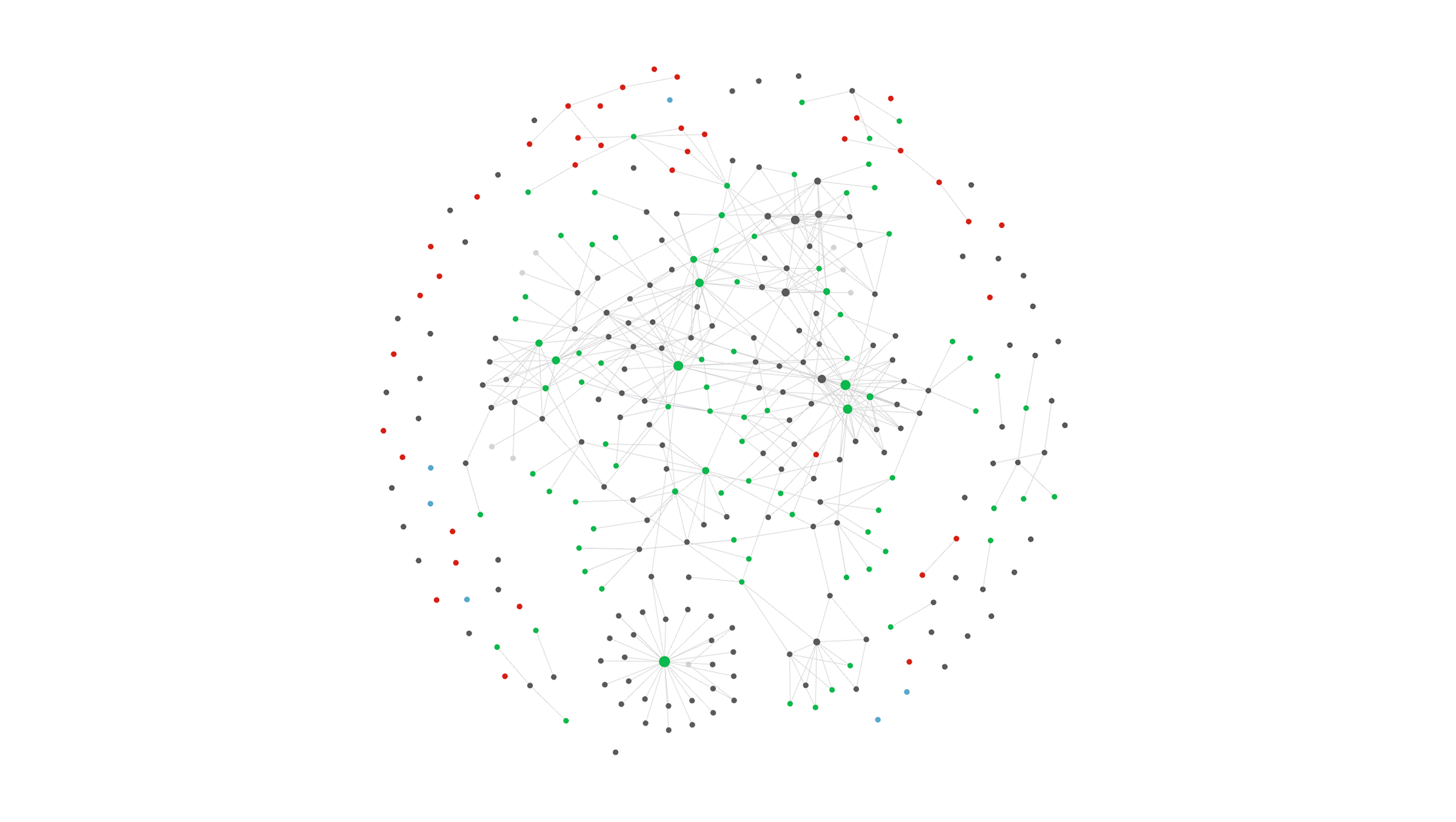Adding Wiki Links to 11ty
planted on in: Blogging, 11ty, Wiki Links and Obsidian.
~2,026 words, about a 11 min read.
I use Obsidian.md to draft my posts before they are published on PhotoGabble. One feature of #Obsidian that I love is interlinking between notes and being able to see the connectivity graph of each note.
Preface
My publishing workflow typically consists of creating new notes in Obsidian and dumping in a lot of research links, random thoughts and references to other notes via use of Obsidian's built-in Wikilinks function; specifically, any [[bracketed]] word is converted to a link.
A while back I brought that functionality over to PhotoGabble and with it the concept of back links and the connectivity graph that I like from Obsidian[1]. This means I can interlink any two pages and display "what else links here".
Teaching 11ty Wikilinks
This solution borrows from Evan Boehs Digital Garden, specifically the source of their garden.11tydata.js. In order to parse content for backlinks and relevant page metadata this solution is made up of two parts:
- A computed data function for calculating backlinks and filling a
Map()with useful page metadata - A Markdown It plugin for parsing wikilink syntax and replacing with
<a>tags based upon lookup of aforementionedMap()
The Markdown It Wikilink plugin:
module.exports = function(md, linkMapCache) {
// Recognize Mediawiki links ([[text]])
md.linkify.add("[[", {
validate: /^\s?([^\[\]\|\n\r]+)(\|[^\[\]\|\n\r]+)?\s?\]\]/,
normalize: match => {
const parts = match.raw.slice(2, -2).split("|");
const slug = slugify(parts[0].replace(/.(md|markdown)\s?$/i, "").trim());
const found = linkMapCache.get(slug);
if (!found) throw new Error(`Unable to find page linked by wikilink slug [${slug}]`)
match.text = parts.length === 2
? parts[1]
: found.title;
match.url = found.permalink.substring(0,1) === '/'
? found.permalink
: `/${found.permalink}`;
}
})
};The plugin accepts an instance of markdown it (md) and a Map in the form of linkMapCache; the link map cache is filled by the computed data function and acts as a way of looking up the title and permalink for a given input.
If a link is valid but also contains a custom title e.g. [[ Page Title | Override ]] then the page will be looked up by Page Title and linked via <a href="/page-slug">Override</a>.
If a link isn't valid then unlike with Evan's solution I throw an Error. Evan has a separate collection that builds virtual stub posts for these missing pages. I have chosen to be made aware of them so that I might manually add a stub post. This is only really because it forces me to follow my own work flow, while a fully automated system would leave a lot of stubs never finished.
Eleventy Computed Backlinks Data:
With the wikilink syntax being parsed the linkMapCache needs filling. To do this I needed 11ty to loop over my main posts collection and for each post: identify what it wikilinks to as well as what is wikilinking back to it. This can be done in two ways that I know of: as a map function run on the posts collection when added to 11ty or as computed frontmatter.
// This regex finds all wikilinks in a string
const wikilinkRegExp = /(?<!!)\[\[([^|]+?)(\|([\s\S]+?))?\]\]/g;
const parseWikilinks = (arr) => arr.map(link => {
const parts = link.slice(2, -2).split("|");
const slug = slugify(parts[0].replace(/.(md|markdown)\s?$/i, "").trim());
return {
title: parts.length === 2 ? parts[1] : null,
link,
slug
}
});
// This function gets past each page via *.11tydata.js in order to
// fill that pages backlinks data array.
module.exports = (data) => {
if (!data.collections.all || data.collections.all.length === 0) return [];
const allPages = data.collections.all;
const currentSlug = slugify(data.title);
let backlinks = [];
let currentSlugs = [currentSlug];
// Populate our link map for use later in replacing wikilinks with
// page permalinks.
// Pages can list aliases in their front matter, if those exist we
// should map them as well.
linkMapCache.set(currentSlug, {
permalink: data.permalink,
title: data.title
});
if (data.aliases) {
for(const alias of data.aliases) {
const aliasSlug = slugify(alias);
linkMapCache.set(aliasSlug, {
permalink: data.permalink,
title: alias
});
currentSlugs.push(aliasSlug)
}
}
// Loop over all pages and build their outbound links if they
// have not already been parsed, this is being done in a way
// that is cached between reloads so restarting the dev server
// will be required to pick up changes.
allPages.forEach(page => {
if (!page.data.outboundLinks) {
const pageContent = page.template.frontMatter.content;
const outboundLinks = (pageContent.match(wikilinkRegExp) || []);
page.data.outboundLinks = parseWikilinks(outboundLinks);
}
// If the page links to our current page either by its title
// or by its aliases then add that page to our current
// page's backlinks.
if (page.data.outboundLinks.some(link => currentSlugs.includes(link.slug))) {
backlinks.push({
url: page.url,
title: page.data.title,
})
}
});
// The backlinks for the current page, set to the page data
return backlinks;
}This is then used via your *.11tydata.js files via:
module.exports = {
eleventyComputed: {
backlinks: (data) => backlinks(data),
},
};Displaying the backlinks
Once done you will begin seeing any wikilinks you use get converted into links and your page data will now have a backlinks property that you can display to users. To do so I use the following snippet:
{% if backlinks.length > 0 %}
<nav>
<h3>Linking here</h3>
<ul>
{%- for link in backlinks %}
<li><a href="{{ link.url }}">{{ link.title }}</a></li>
{%- endfor %}
</ul>
</nav>
{% endif %}The Post Relationship Graph

It's satisfying to see interconnected ideas
A lovely side effect of adding backlink support is that you now have a map of post relationships that could be exported to json and made available to the frontend for displaying as a pretty node graph much like how Obsidian does.
I'll leave that as an exercise for the reader.
Although as of writing this I have yet to surface the graph to the website in a way that can be seen. ↩︎